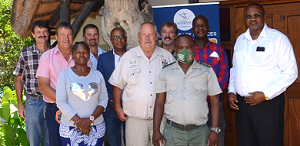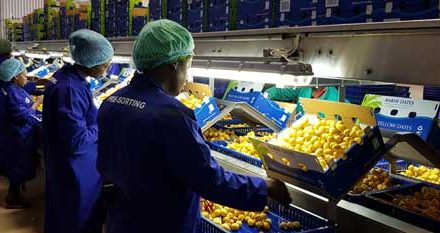
Alternative perspective on animal nutrition for optimal production
Two international experts on rangeland management are set to visit Namibia later this month to present a training workshop in Windhoek on alternative methods for improving animal nutrition. This workshop is organised by the Namibia Centre for Holistic Management in partnership with Integrated Rural Development and Nature Conservation (IRDNC) and the Polytechnic Agricultural Economics Department.
Mark Bader from Wisconsin in the USA is known to some farmers and scientists in Namibia for pioneering the “cafeteria style” free choice mineral supplementation program where livestock can select on their own which and how much from each mineral and chemical composition they require for their health and production. Based on those early experiences Bader later added custom mixed combinations of nutritional supplements that are effecting the PH in the animal’s body in such a way that the feed conversion and health of the animal are improved for various production goals in either dairy or beef.
Ian Mitchell-Innes is locally and internationally known for the phenomenal increase in livestock production he has achieved on his farm in Natal, South Africa by using a combination of Holistic Management principles. His application of cutting edge insights into how and when forage grows and how to adapt grazing for optimal production, has improved profitability for many cattle farmers.
During the one and a half day workshop in Windhoek they will complement each other by giving easy to follow presentations of the complex biochemical processes in the animal’s digestive system and how these processes influence the general health and production capacity of the animal. The workshop is titled “What does PH have to do with it?”
Participants can expect to hear the latest insights of all the factors that influence the quality and digestibility of forage and how planned grazing can help to improve vegetation and soil fertility.
Because they have consulted for a number of farmers in Namibia, the US and Australia, their discussions will be informed by the needs and production circumstances of Namibian farmers. Workshop participants will have ample opportunity to ask questions.
Most importantly they will discuss practical management options, including the cost and the expected increase in production and income from each management option. There will be suggestions for both the resource poor farmer who has challenges of buying and transporting licks, as well as the commercially oriented farmer who has access to capital and transport.
Bader and Mitchell-Innes indicated that they are willing to explore with interested farmers and distributors the potential of importing special supplementary products. However, the focus of their visit to Namibia is to help local farmers understand how to optimize the conversion of indigenous forage into high quality meat and other animal products while at the same time improving the resilience and productivity of rangeland.
The workshop takes place on 21 and 22 November at the Polytechnic Hotel School in Windhoek West.










































